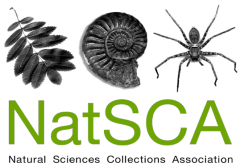With ongoing losses to UK biodiversity occurring, the need for suitably experienced, passionate biologists who can identify and classify plants and animals, and engage young people with the natural world, has never been greater. There has, however, been a decline in biological field skills, particularly in emerging scientists and graduates, in recent years. This is due to a combination of factors, including our changing relationship with nature, reduced childhood engagement, and a lack of education and training opportunities. Cuts to museum specialists have also occurred, making it more difficult for early career professionals to gain the training required to work in field ecology, taxonomy, and as specialist curators.
The ‘Identification Trainers for the Future’ traineeship, launched in 2015 by The Natural History Museum (NHM) in partnership with the Field Studies Council (FSC) and the National Biodiversity Network (NBN), and hosted within the Angela Marmont Centre for UK Biodiversity (AMC), is a strong example of how early career professionals can develop ecological field and curatorial skills. It provides a platform for passionate individuals to
train future generations in wildlife identification, support naturalist groups, and engage public audiences to connect with the natural world. This paper outlines the aims and key elements of the ID Trainers for the Future traineeship, reflecting on personal experiences. Finally, the paper outlines initial lessons learnt and next steps as the active phase of the programme draws to a close with the final cohort of trainees in spring of 2018.
